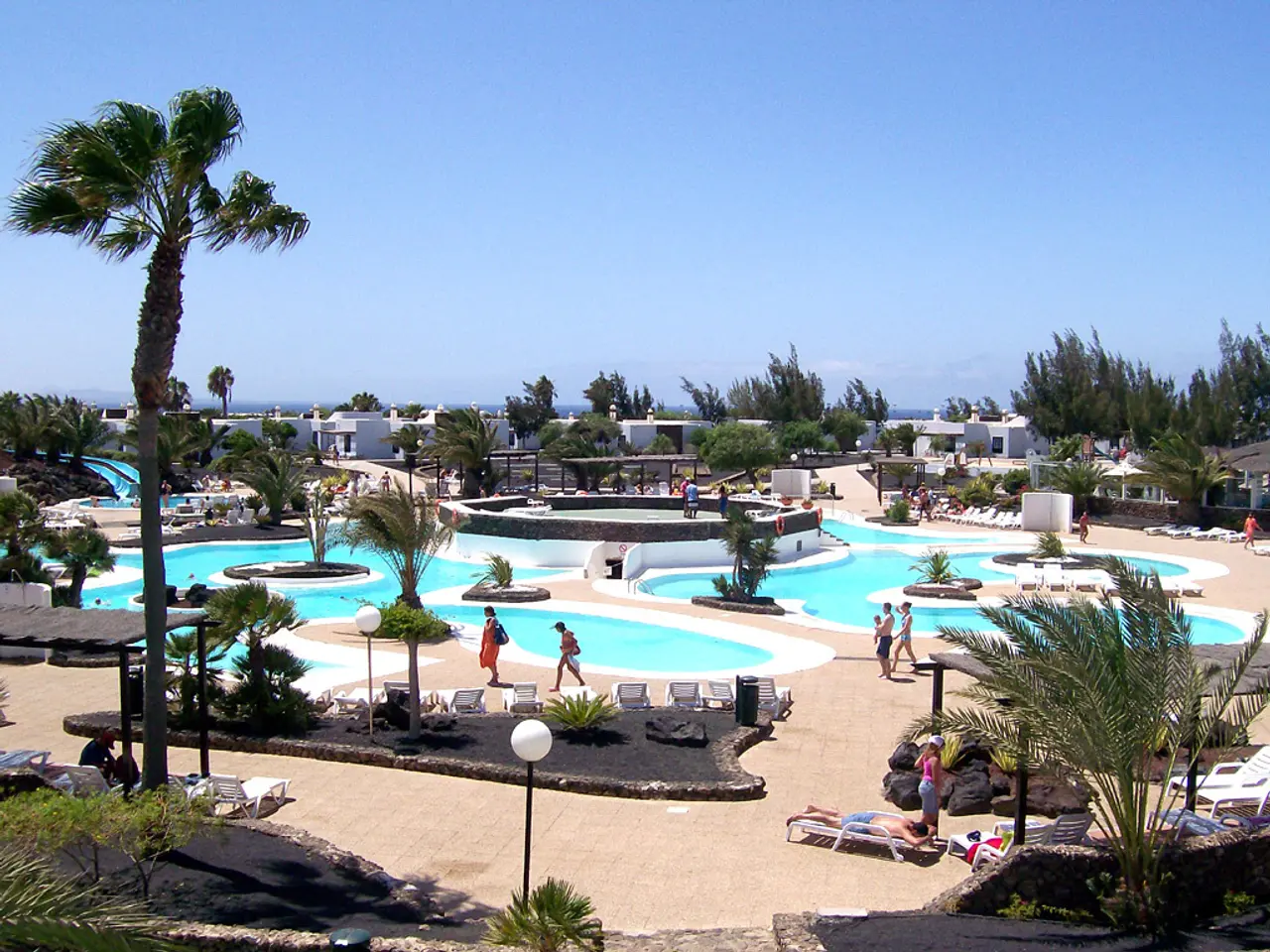Alicante's Transformation in Trends: The Revolution in Tourism, Fashion, and Technology
In the sun-drenched Alicante region of Spain, Costa Blanca South is leading the way in transforming its tourism landscape. The region is aiming to usher in a new era of innovative tourism, blending sustainability and digitalization to create a greener and more immersive future for both residents and visitors.
Costa Blanca South's digitalization initiatives are not just limited to waste management or safety measures. The region is investing in eco-friendly infrastructure, heritage and local experience tourism, renewable energy in real estate, and digital tools enhancing tourism and property markets. These strategies are designed to attract tourists year-round, expanding the region's appeal beyond the traditional peak season.
One of the key areas of focus is sustainable tourism development. Enhancing hiking and cycling routes, preserving cultural-historical sites, and promoting local food tours, heritage walks, and eco-friendly accommodations are all part of this strategy. This approach not only appeals to tourists seeking authentic experiences but also contributes economically to smaller towns beyond major tourist centers.
Digital initiatives in the real estate and tourism sector are also playing a significant role. Investments in smart technologies for booking, property management, and visitor engagement are supporting the growth of sustainable, tech-savvy tourism offerings. The green shift in housing, with properties incorporating solar power, energy-efficient insulation, and water-saving systems, is particularly attractive to eco-conscious foreign buyers. This, in turn, is helping to increase long-term stays and rentals during off-peak seasons.
These sustainable and digital enhancements have led to record tourism spending, with over €6.8 billion in the first half of 2025. International arrivals have risen by 5.68%, and average daily tourist spending has increased by 4.67%. This growth indicates growing economic benefits that extend beyond summer months, helping to mitigate seasonality effects.
Local government projects, such as green restoration and reforestation efforts in nearby areas like Cartagena’s Galeras Mountain, are also contributing to the region's environmental appeal. These initiatives support sustainable tourism in off-peak periods by preserving natural assets year-round.
Golf tourism in Costa Blanca South is another key part of the region's tourism strategy. Known for having some of the most desirable golf tourism regions in Spain, the Costa is leveraging this attraction to expand its appeal into the off-peak season. Golf tourism is not only attracting moguls but also average holidaymakers, playing a significant role in the economic growth of the Alicante region.
To help tourists and expats integrate into the local lifestyle, the Costa provides a variety of apps and devices. These tools offer information on swimming, weather, and jellyfish conditions on Costa beaches, making it easier for visitors to enjoy the region's attractions. The Costa's brown trash bins are also equipped with an application offering a 20% discount on waste collection fees, encouraging recycling.
The digitalization of safety measures, including making the Guardia Civil more accessible, is another aspect of Costa's commitment to smart and sustainable tourism. By embracing technology, the region is ensuring the safety of residents and visitors while promoting a more modern and immersive tourist experience.
In conclusion, the Alicante region's focus on sustainability and digitalization is transforming Costa Blanca South into a destination that caters to modern travelers' preferences. By diversifying tourism offerings, enhancing visitor experience, and stabilizing the tourism economy, the region is positively impacting off-peak season attractiveness and tourism growth.
The digital transformation in Costa Blanca South includes investments in eco-friendly infrastructure and digital tools, expanding the region's appeal to year-round tourists. This adjustment is attracting eco-conscious foreign buyers, who value properties incorporating sustainable technologies like solar power and water-saving systems.
The region's commitment to smart and sustainable tourism extends to the digitalization of safety measures, making the Guardia Civil more accessible and ensuring the safety of residents and visitors while promoting a modern and immersive tourist experience. This Tech-savvy approach to security is enhancing the lifestyle for both locals and tourists in Costa Blanca South.




